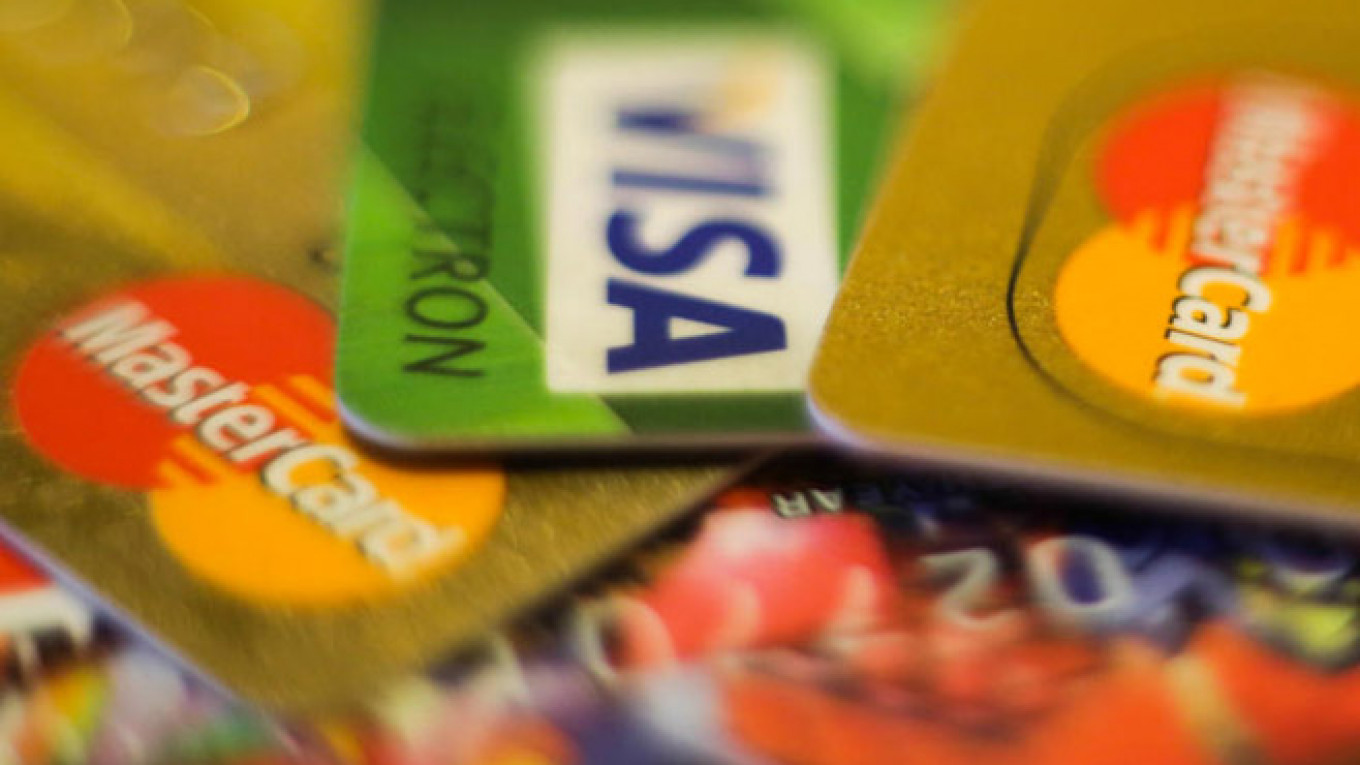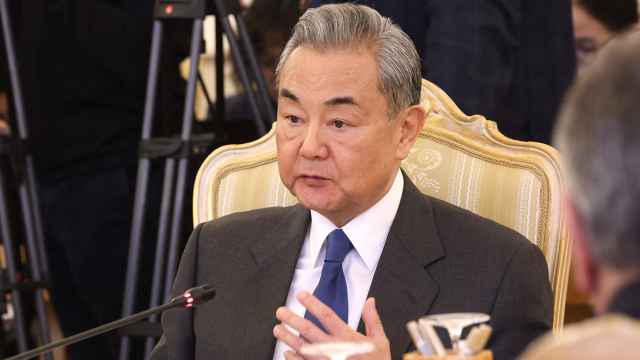The Russian government has officially declared the conditions that will allow international payment systems Visa and MasterCard to continue business in Russia without paying the massive security deposit that had threatened to shove them out of the country.
To avoid paying the security deposit and fines for interruption of service, the companies must find a Russian payment system deemed "of national importance" to process their transactions by Oct. 31, according to a decree signed by Prime Minister Dmitry Medvedev on July 15 and published Tuesday on the government's website.
This solution to the standoff was floated by Central Bank chief Elvira Nabiullina at a banking conference earlier this month.
Reuters reported previously that MasterCard had already begun searching for a Russian partner to help it circumvent the law.
Visa and MasterCard's problems in Russia began in March, when they abruptly cut off service to two Russian banks in an effort to comply with U.S. sanctions imposed on Russia following its annexation of Crimea.
The denial of service set off a movement spearheaded by President Vladimir Putin to end Russia's dependence on foreign payment systems, which culminated in a law signed by Putin in May that laid the groundwork for the creation of a national payment system to replace foreign players.
The law would also have forced international payment systems to submit a hefty security deposit to the Central Bank in order to continue operating in Russia. Morgan Stanley analysts at the time estimated that the joint deposit for Visa and MasterCard could amount to $2.9 billion, which is five times more than their annual revenues in Russia.
The law set off a flurry of negotiations and proposals on ways to keep Visa and MasterCard, who together process about 90 percent of transactions in Russia, from leaving the market altogether.
Also on Tuesday, the government published the requirements that payment systems will have to fulfill to be considered "of national importance" — a status that will exempt them from having to submit a security deposit.
At least 25 percent of the payment infrastructure, applications and software that the systems use must be developed by Russian organizations and provided under contracts lasting at least five years, among other requirements.
As of Tuesday, only one Russian payment system had received this status — the National Settlement Depositary, a part of the Moscow Stock Exchange group.
Nabiullina said at the end of June that the national payment system will be created within six months, ITAR-Tass reported.
See also:
New U.S. Sanctions Won't Affect MasterCard, Visa's Russian Operations
Contact the author at d.damora@imedia.ru
A Message from The Moscow Times:
Dear readers,
We are facing unprecedented challenges. Russia's Prosecutor General's Office has designated The Moscow Times as an "undesirable" organization, criminalizing our work and putting our staff at risk of prosecution. This follows our earlier unjust labeling as a "foreign agent."
These actions are direct attempts to silence independent journalism in Russia. The authorities claim our work "discredits the decisions of the Russian leadership." We see things differently: we strive to provide accurate, unbiased reporting on Russia.
We, the journalists of The Moscow Times, refuse to be silenced. But to continue our work, we need your help.
Your support, no matter how small, makes a world of difference. If you can, please support us monthly starting from just $2. It's quick to set up, and every contribution makes a significant impact.
By supporting The Moscow Times, you're defending open, independent journalism in the face of repression. Thank you for standing with us.
Remind me later.






